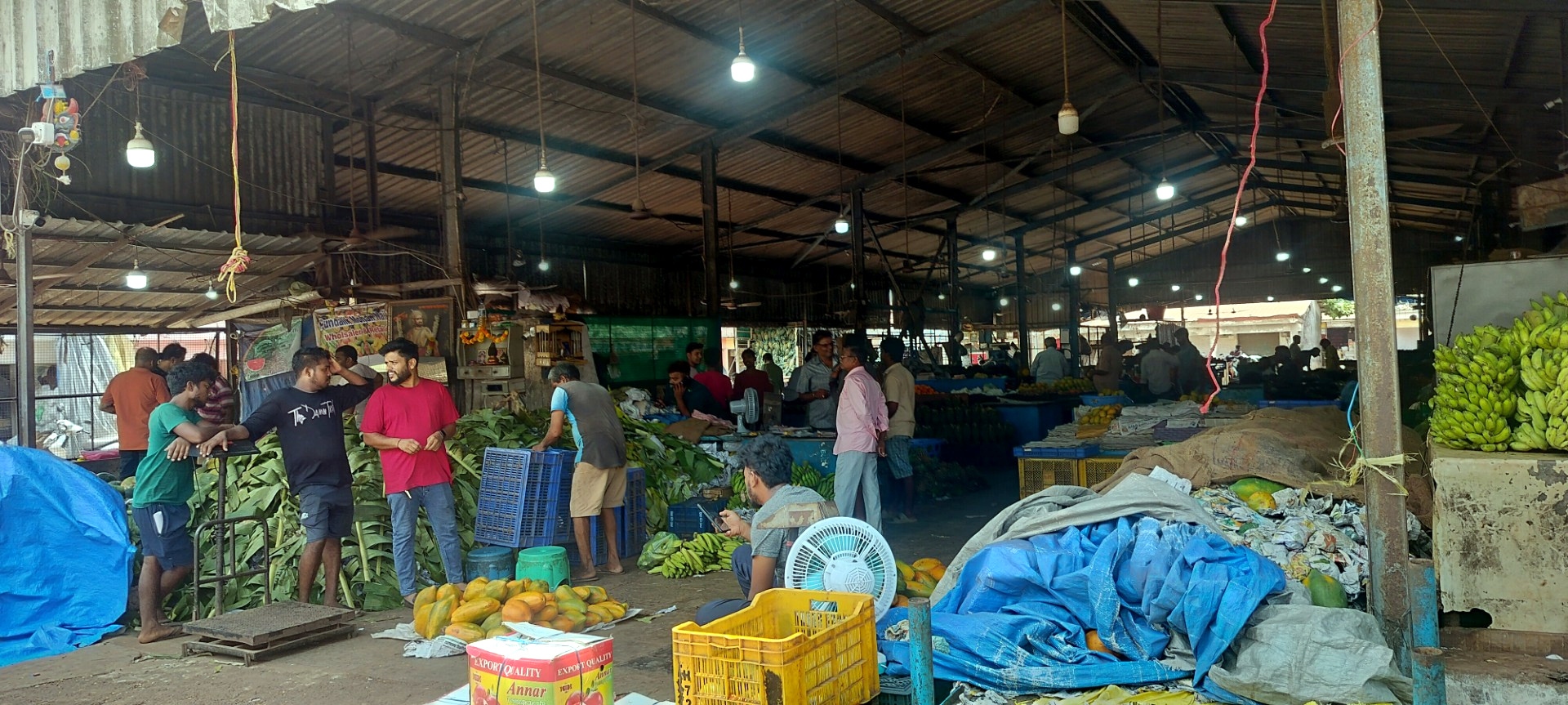
The sub-yard at Mapusa.
Photo Credits: The Goan
MAPUSA
The bustling Mapusa sub-yard, a key hub for fruit distribution in North Goa, found itself in controversy recently after a surprise inspection by the Food and Drugs Administration (FDA) led to the seizure and destruction of fruits allegedly ripened using unauthorised methods.
During the raid, FDA officials reportedly seized and destroyed mangoes worth approximately Rs 5 lakh and confiscated around 20 kg of bananas.
The inspection revealed the use of illegal ripening techniques, including the presence of ethanol sachets in mango crates – a practice deemed hazardous if done improperly.
Former chairman of the Mapusa market sub-yard committee, Amey Natekar, defended the traders, emphasising that many of them lack formal knowledge about modern ripening methods and operate based on long-standing traditional practices.
“Our fruit traders come from humble backgrounds. Many of them were earlier daily wage labourers who turned into small businessmen. They are not fully aware of what’s permitted and what’s not,” Natekar said, calling for a more constructive approach from the FDA.
He stressed the need for awareness and education rather than punitive action.
“The FDA should organise training or workshops to educate the traders about permissible ripening methods, including the correct use of ethanol, if at all allowed,” he said.
Natekar also pointed out that ethanol, a substance used to generate heat, is commonly employed in ripening processes across the country.
“If it’s banned, then the FDA should clearly inform us. If it’s allowed in limited quantities, then they should specify how much is acceptable,” he added.
He said the FDA was doing a good job from the perspective of giving clean products to consumers, but the sudden action against the traders was disruptive to the local economy, especially to traders who supply bananas and mangoes to vast areas, including Bardez and parts of Maharashtra such as Dodamarg, Sawantwadi and Kudal.
“The yard has been functioning for 42 years, and for decades, the same fruit-ripening methods have been used. This sudden clampdown without prior warning is unfair,” he said, adding that the traders are willing to cooperate if given proper guidance.
At present, most fruit traders in the Mapusa sub-yard rely on traditional ripening methods.
Bananas are typically ripened using the bhatti system, where fruits are kept in a chamber or enclosed space for a day or two to generate the necessary heat. However, this method reduces the shelf life of the fruit and lacks consistency.
In contrast, the modern and recommended approach is the use of ripening chambers – technology-driven enclosures that regulate heat and humidity and can use controlled amounts of ethanol gas.
However, such facilities are currently unavailable in Mapusa, putting local traders at a disadvantage.
“There are at least 8 to 10 banana wholesalers and around 5 to 6 mango wholesalers operating from this yard. These traders source mangoes from Karnataka, Tamil Nadu, and Andhra Pradesh and bring them raw to ripen here,” Natekar said.
He confirmed that a formal request has been submitted to the FDA, urging the agency to conduct joint workshops and collaborate with traders to improve compliance and public safety without jeopardising livelihoods.
As the debate continues, the traders hope for a balanced solution that ensures food safety while preserving the fragile ecosystem of small-scale businesses that drive the State’s fruit trade.